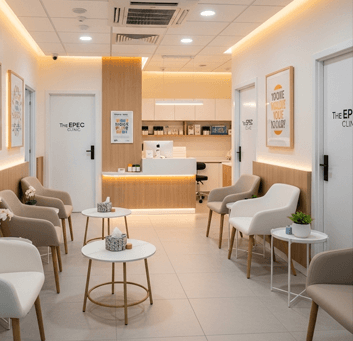Treating Depression - Part 1 of 2
- Author
- Mar 25, 2025
- 2 min read

Treating clinical depression (also called major depressive disorder, or MDD) involves a combination of medical, psychological, and lifestyle interventions tailored to the individual’s needs and the severity of the condition.
1. Medications
Antidepressants are often a first-line treatment, especially in moderate to severe cases.
Selective Serotonin Reuptake Inhibitors (SSRIs)
Examples: Sertraline, Fluoxetine, Citalopram, Escitalopram
Generally well-tolerated and commonly prescribed.
Serotonin-Norepinephrine Reuptake Inhibitors (SNRIs)
Examples: Venlafaxine, Duloxetine
May help if SSRIs are ineffective.
Atypical antidepressants
Bupropion (Wellbutrin) – often used when fatigue or sexual side effects are issues.
Mirtazapine – sometimes helpful for sleep and appetite.
Tricyclic antidepressants (TCAs) and MAO inhibitors
Older classes, used less often due to side effects but still effective in some cases.
💡 Note: It can take 4–6 weeks to see improvement, and finding the right medication/dose may take time.
2. Psychotherapy
Particularly effective for mild to moderate depression, or in combination with medication:
Cognitive Behavioral Therapy (CBT) – helps identify and challenge negative thought patterns.
Interpersonal Therapy (IPT) – focuses on improving relationships and communication.
Psychodynamic therapy – explores unconscious patterns and past trauma.
Behavioral activation – encourages engagement in meaningful activities.
3. Lifestyle Changes
These can greatly support recovery and prevent relapse:
Exercise – regular physical activity has proven antidepressant effects.
Sleep hygiene – maintain a consistent sleep schedule.
Healthy diet – balanced nutrition can affect mood regulation.
Avoid alcohol and recreational drugs – they can worsen depression.
Social support – connecting with friends, family, or support groups can reduce isolation.
4. Other Treatments
Used when depression is resistant to standard treatment:
Electroconvulsive Therapy (ECT) – very effective for severe or treatment-resistant depression.
Transcranial Magnetic Stimulation (TMS) – non-invasive brain stimulation.
Ketamine or Esketamine (Spravato) – rapid-acting treatments for refractory cases.
5. Monitoring and Follow-up
Regular check-ins with a healthcare provider.
Tracking mood and symptoms.
Adjusting treatment based on response and side effects.
For information about depression and suboxone, please call us 443-559-8354




Comments